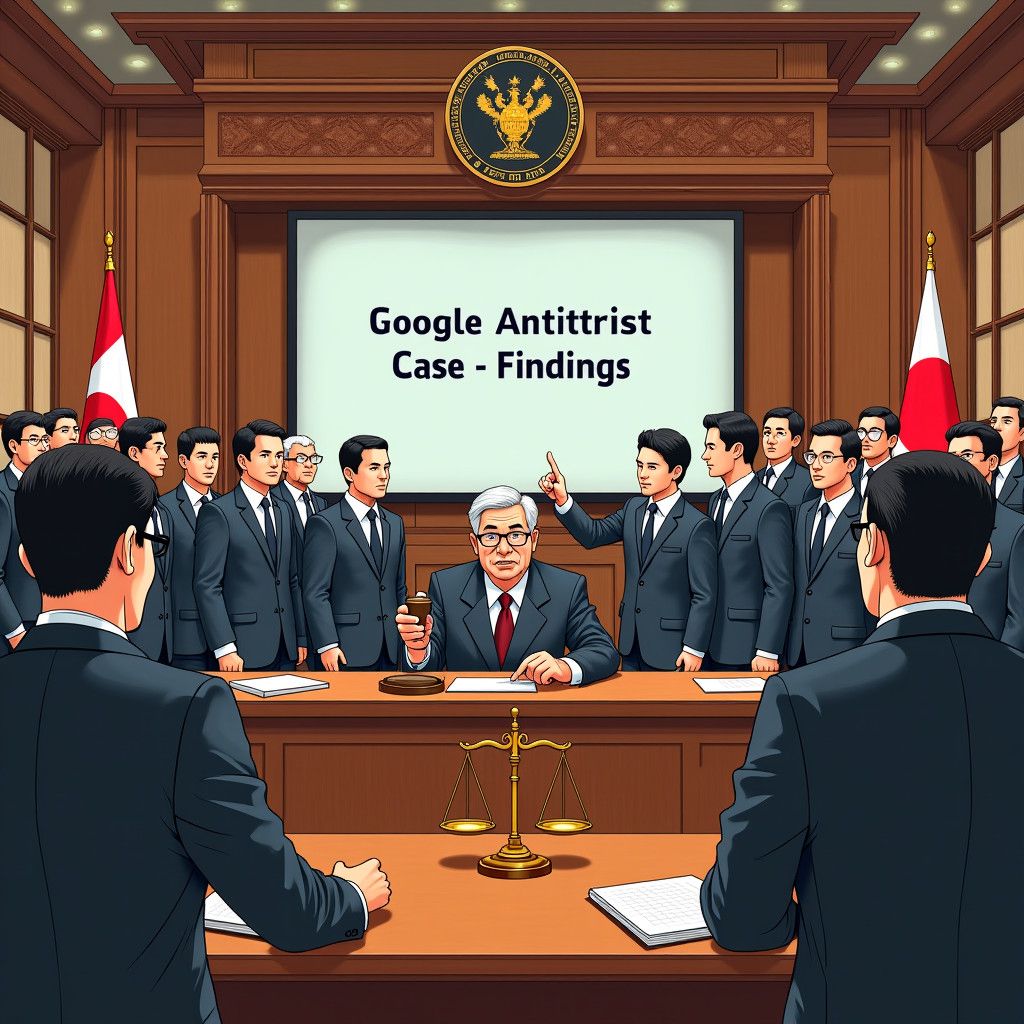As global scrutiny of large tech companies intensifies, Japan is poised to issue a landmark ruling against Google, affirming antitrust violations that could reshape the competitive landscape of the digital market. According to recent reports from Nikkei Asia, the Japan Fair Trade Commission (JFTC) has gathered evidence that suggests Google’s practices have stifled competition in various sectors, particularly in advertising and search services.
This anticipated ruling is not an isolated event but a part of a broader global effort to rein in dominant tech giants whose market control raises concerns about fair competition. In the last few years, countries like the United States and members of the European Union have pursued similar investigations, raising the stakes for Google and its peers. The decision from Japan could be a significant component of this international movement, with implications that resonate well beyond its borders.
The Core of the Violations
The JFTC’s investigation centers around allegations that Google has used its dominant position to unfairly restrict competitors. This includes the manipulation of advertising services, where Google reportedly favored its products over those of other firms. The commission has claimed that such practices distort fair competition and harm not only rival businesses but also consumers who may face reduced choices and higher prices.
As economic competition relies heavily on innovation and consumer choice, such monopolistic practices contradict the core principles of a fair marketplace. The JFTC’s potential ruling could compel Google to reconsider its strategies, particularly in Japan, which is one of its largest markets.
Historical Context and Global Reactions
Google has faced numerous antitrust legal challenges over the years, highlighting an ongoing clash between regulatory authorities and tech corporations. For instance, both the European Union and the U.S. government have previously fined Google billions for similar antitrust violations. The outcomes of these cases underline a growing commitment from governments worldwide to hold companies accountable for maintaining a fair competitive advantage.
The shift towards stricter regulations comes in response to heightened public awareness regarding the influence and power of these tech giants. For example, a survey indicated that over 60% of consumers believe that tech companies hold too much power in the marketplace. This sentiment has encouraged regulators to act decisively, seeking to balance the scales of competition effectively.
Implications for Google and the Tech Industry
Should the JFTC confirm its findings and impose sanctions on Google, the implications may include significant financial penalties and operational changes required for compliance. Such a decision could encourage other regulatory bodies to take similar actions against Google and other tech behemoths, potentially leading to a ripple effect across the industry.
For instance, Google may have to alter its advertising algorithms or grant more access to competitors within the Japanese market, thereby leveling the playing field. The anticipated ruling is likely to obviate anti-competitive practices and promote consumer welfare, fostering an environment where innovation can thrive.
Broader Impact on Digital Innovation
This ruling could also have a profound effect on the future of digital innovation. When competition flourishes, companies are more likely to invest in new technologies and improve their services. For consumers, this could mean better products and services at competitive prices. Conversely, if tech giants like Google are allowed to operate without sufficient oversight, innovation may stagnate as smaller competitors struggle to gain access to essential market resources.
Moreover, the ruling may prompt other countries to reassess their regulatory frameworks regarding digital monopolies, leading to a more cohesive global approach to antitrust enforcement. If countries can collaborate effectively, they may curb the unchecked growth of multinational corporations and protect consumer interests at a larger scale.
Conclusion
Japan’s forthcoming ruling against Google could signify a pivotal moment in the ongoing struggle between regulatory authorities and major tech companies. By siding with consumer interests and fostering a competitive marketplace, regulatory bodies can make significant strides in ensuring that no single entity can monopolize a sector. As other nations watch closely, the verdict may inspire a shift toward stricter regulations on tech giants worldwide, promoting an innovative digital landscape that prioritizes fair competition and consumer welfare.












